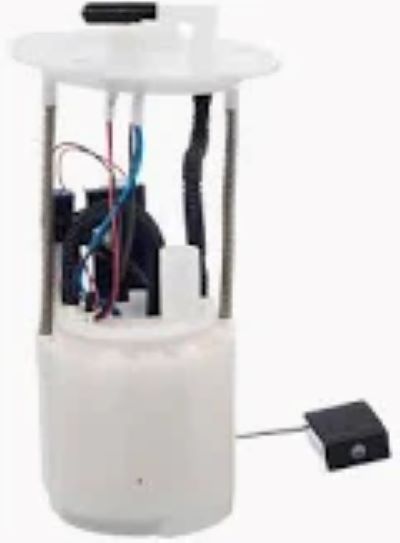Can a fuel pump leak? There are a lot of reasons that can cause a fuel pump to leak. The seals or gaskets eventually degrade, and it is one of the most common reasons. These pumps run at high pressure, oftentimes shooting out 40-55 PSI in more recent cars and as such fuel pump seals are very important for keeping that pressure. Over time, they where out and fuel can escape from them which resulted in leaks. Leaking fuel pumps are a big part of that, and if not caught in time can present a dangerous safety risk including fire hazards.
Fuel pumps that are allergic to their new lives can also be caused by corrosion. As the pump housing corrodes over time, fluids and contaminants enter ride control pump and can limit its free movement within the rigid housing. The corrosion can reduce the structural integrity of the pump and the fuel-pump flange may crack, which could allow fuel to leak. Corrosion is frequently cited in fuel pump-related recalls as the primary reason why leaks develop, with a National Highway Traffic Safety Administration (NHTSA) report on one recall mentioning vehicles over a decade old.
Improper installation could be another reason of a leaking fuel pump. Improper installation of a new pump – If the connections or fittings are not sealed properly, fuel through the hose or connection points can seep out. This issue is typical in cases of DIY repairs where repairing parts do not have manufacturers specifications for torque or fitting tightness. A well-installed fuel pump has a working average life of roughly 100,000 miles; bad or improper pump installation can easily kill the pump long before its time.

A leaking fuel pump can lower fuel efficiency as much as 15%. Fuel that would otherwise be used by the engine escapes resulting in more frequent refueling and a higher cost. That said, a tiny leak may require that you top off oil only every several thousand miles during regular use, but if the level isn't watched and carefully monitored this can easily turn into poor engine performance or an outright no-start condition in the worst case.
Youtube automotive expert ChrisFix said it best, “a leak anywhere in the fuel system is bad. It doesn't just impact performance, it's a real safety risk for the driver and passengers alike. This serves as a stark reminder why fuel pump leaks should be taken very seriously and addressed before leading to further havoc.
The tell-tale signs of a fuel pump leaking are the aroma of gasoline in close proximity to the car, especially around the rear (where the fuel reservoir) is and wet spots beneath your vehicle. Additionally compression loss can cause a drop in fuel pressure, yielding an erratic engine that might even stall.
Once a fuel pump leak is detected, it is important to get it inspected and repaired quickly. Replacing a leaking fuel pump can cost anywhere from $400 to $800 depending on the vehicle and its level of damage. If you buy top quality parts, you can save your vehicle fuel system running longer. Head on over to Fuel Pump now and get the best fuel pumps online to avoid those leaks, and stay performing at high levels.
